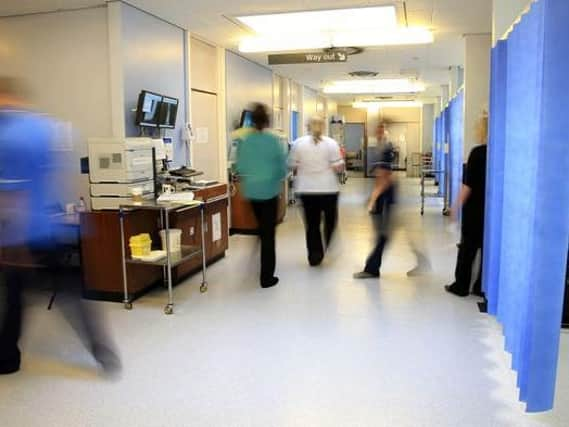Rise in Northern Lincolnshire and Goole Trust cancer referrals


NHS England data shows 1,325 people were seen by a specialist at Northern Lincolnshire and Goole NHS Foundation Trust following an urgent GP referral in March – 34 percent more than in February, when there were 989.
The month also saw the highest number of appointments recorded since the start of the pandemic in March last year.
Advertisement
Hide AdAdvertisement
Hide AdNationally, patients with suspected skin and breast cancers were among the most referred by GPs. At the Northern Lincolnshire and Goole Trust there were 56 appointments for suspected skin cancer and 351 for suspected breast cancer in March.
However, waiting times continue to be a struggle at the hospital trust as just 52 percent of cancer patients started treatment within two months of an urgent GP referral in March this year – well short of the 85 percent target introduced by the NHS a decade ago.
Although an improvement on 51 percent in February, it was down from 68 percent in March last year.
However, 99 percent of patients did have their first appointment within two weeks of a referral in March this year, meeting the NHS-wide target of 95 percent.
Advertisement
Hide AdAdvertisement
Hide AdShaun Stacey, chief operating officer at Northern Lincolnshire and Goole NHS Foundation Trust , said: “Despite treating around 1,500 Covid-19 patients we have managed to maintain our urgent and cancer services throughout the pandemic which is testament to the incredible efforts of our staff.
"As the numbers of COVID-19 patients have and continue to further decline, our attention is now focussed on how we tackle our waiting lists that have unfortunately increased as a result of the pandemic. Everyone who is on our waiting list has been reviewed and our clinical teams are working hard to ensure we prioritise care to those who need it most urgently.
"We do know that some people have been reluctant to seek help during the pandemic - It is so important that if you have potential cancer symptoms you visit your GP to get them checked out."
Across England, 232,000 people were seen for urgent cancer investigations after being referred by their GP in March, more than in any of the previous 12 months.
Advertisement
Hide AdAdvertisement
Hide AdCancer Research UK's senior intelligence manager, Jon Shelton, said it was not enough getting back to normal levels, adding further investment was required to diagnosis thousands of people who had not come forward during the pandemic.
Macmillan Cancer Support welcomed the figures, but said they rounded off a "devastating year of disruption" which had led to thousands of people undiagnosed or facing delayed treatment.
Macmillan's head of policy, Sara Bainbridge, said a long-term workforce plan was now needed to tackle the treatment backlog and improve cancer care.
“These results show signs of improvement, but today’s data rounds off a devastating year of disruption, which has seen tens of thousands of people missing a diagnosis or experiencing changed and delayed treatment, while their chances of survival potentially worsen.
Advertisement
Hide AdAdvertisement
Hide Ad“As Covid pressures lift, the Government can no longer put off fixing the chronic undersupply of cancer staffing and resources."The NHS said it was "welcome news" that more people were seen as a result of GP referrals in March.
Professor Stephen Powis, the national medical director for the NHS, said: “But we want to go further and faster on this recovery, which is why we’re investing £160 million on ways to tackle waiting lists and putting in place practical plans to speed up non-urgent operations."